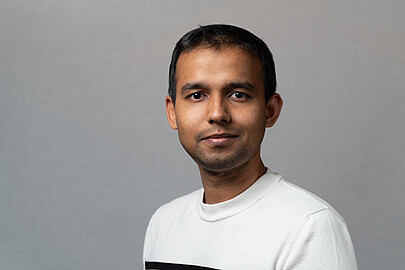im QIS
Contents
The HWP includes three mandatory experiments and two mini-projects, of which participants are required to choose one of the mini-projects.
EXP.1: Digital Circuits and Computer Architecture
- Understanding basic logic gates, Boolean algebra, and optimization techniques such as Karnaugh-Veitch diagrams.
- Implementing multiplexers, adders, flip-flops, counters, and finite state machines (Mealy/Moore).
- Exploring key components of a digital computer, including RAM, ALU, and registers.
EXP.2: Signal Transmission
- Understanding light wave transmission, attenuation, and connection interfaces in fiber optics and infrared communication.
- Investigating power characteristics of transmission diodes, spectral sensitivity of infrared receivers, and the photometric distance law.
- Analyzing the effects of interference in wired two-wire transmission and the emission characteristics of infrared transmission modules.
EXP.3: FPGA-based Communication
- Designing and simulating digital circuits using Verilog and FPGA programming tools.
- Understanding high-performance packet handling modules that interface with AXI4-Stream protocol.
- Exploring synthesis, resource utilization, and performance optimization for FPGA-based systems.
Mini-Project 1: Autonomous TurtleBot Applications for Building Intelligent Robotic Services
Mini-Project 2: FPGA Prototyping
Organisation
Requirements
- Prerequisites:
- Grundlagen Digitaler Systeme
- Grundlagen der Elektrotechnik
- Grundlagen der Rechnerarchitektur
- Number of participants: 64
Appointments
Summer semester
- Preliminary meeting: 08.04.2025
- Expected dates:
- Tuesdays : 14:00 till 18:00
- Wednesdays : 14:00 till 18:00
- More details on the appointments available on StudIP
Materials
- Available on studIP
Workflow of Experiments
Preliminary Test:
At the beginning of each experiment, each participant or group's preparation for the experiment is tested. The test is administered in writing by the respective experiment supervisor. Passing this test is required to begin the experiment day.
Report:
During the experiment day, students in each group will prepare a report in which they must answer a number of questions. At the end of the experiment day, the report will be submitted to their supervisor for evaluation.
Final Test:
At the end of each day of the experiment, a short test (including a written portion) is conducted with the respective supervisor. The developed solutions and any problems encountered are reviewed and evaluated.
Ihre Betreuerinnen und Betreuer


30167 Hannover




